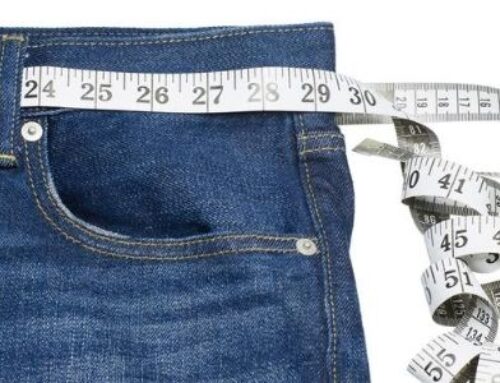 As summer approaches, many of us are shedding our winter jackets to realise that some of that extra winter fluff isn’t all track pants and thermal layers. This time of year brings with it an increase in the number of people looking to drop those unwanted winter kilos or build the elusive ‘beach body’.
As summer approaches, many of us are shedding our winter jackets to realise that some of that extra winter fluff isn’t all track pants and thermal layers. This time of year brings with it an increase in the number of people looking to drop those unwanted winter kilos or build the elusive ‘beach body’.
Moderation just isn’t sexy
Working towards a healthier lifestyle through increased physical activity and improved eating habits, is always a positive move. The problem occurs when we decide to go from 0 to 100 in a short period of time. We go from winter hibernation of watching Netflix in bed and snacking on a few too many peanut butter Tim Tams (I wish they’d never put those two foods together….that’s a lie, I love them) to training 7 days a week and cutting out whole food groups based on current fads and a TV chef’s advice.
As humans we gravitate towards extremes. They’re exciting. It’s either eat everything or eat hardly anything. Black or white. Moderation and dietary flexibility don’t seem to garner as much attention as rigid diet protocols. Maybe it’s because they fall into the shades of grey which hasn’t been exciting since the words of E.L. James.
Working as a personal trainer I like to tell my clients ‘stimulate, not annihilate’. We want to create a stimulus in the body that sends it a message to adapt in order to cope with that stress. Too much stress however, and we increase the likelihood of burning out, impeding recovery and risking possible injuries. All of which will set us back in the long run and decrease motivation to continue with our active lifestyle goals.
A similar principle can be applied in relation to dieting to improve body composition. Many of the popular rigid dieting methods drop energy intake to 1200 calories (which by the way is an random number that is unsuitable for most individuals). We then eliminate certain foods or whole food groups. This can admittedly result in rapid and relatively large losses of weight. However, what is less talked about are the negative consequences of this type of program.
The problem with excessive restrictions:
Overly restrictive diets can result in both physiological and psychological problems including:
- Increased chances of developing nutrient deficiencies. Eliminating “forbidden” foods from our diets is a strategy that is fairly commonly used to control eating behaviour in fad diets. But it reduces the variety of foods you can eat and then the variety of nutrients your body needs.
- Increased food cravings. These have been associated with higher BMI’s, increased binge eating behaviours and disordered eating patterns.
- Greater losses of lean body mass. When dieting we want to maintain as much muscle as possible, not only from an aesthetic standpoint, but for functional performance. More lean muscle mass will keep your metabolic rate as high as possible (so we can eat more food!)
- Greater negative hormonal changes. Without going into great detail, diets aimed at reducing body fat present the body with a significant physiological challenge. Weight loss and energy restriction cause our body to try and conserve energy and also drive us to want to eat more. These adaptions make weight loss harder as the diet goes on and makes us vulnerable to rapid weight regain following the end of the diet.
- Reduced physical performance and poor recovery. Less food equals less energy. If we reduce energy intake by too much we are likely to be in an energy depleted state. So, when it comes time to exercise it’s no wonder your legs feel like lead and your motivation drops halfway through the session.
So what can we do!!?
Rigid, short term solutions are always going to result in weight regain. If you cannot see yourself being able to continue the lifestyle it takes to get to your goal, then it is not sustainable and should be reconsidered.
In order to successfully reach (and maintain) your fitness and body composition goals, while preserving your sanity, I’ve listed some tips to consider:
- Eat as much food as possible while still achieving steady weight loss. We want to be eating as much food as we can (with the majority coming from nutrient rich whole foods) while still working towards our goals. This allows us more wriggle room for occasional treats and makes your new active lifestyle habits more sustainable.
- Find a form of physical activity you enjoy and do it consistently. Whether it be the gym, jogging, cycling, hiking or team sports. Regular exercise is the best predictor of weight maintenance.
- Increase training volume gradually. If you’re coming back from a few months of reduced physical activity your body doesn’t require hours of training everyday. ‘Stimulate , not annihilate’ by gradually increasing your physical activity. You’re also more likely to avoid the weird looks in public because you’re walking like the tin man from Wizard of Oz.
- Be prepared for fat loss to stall. Plateaus are going to occur. It’s our bodies defence system. However, because we’re prepared and didn’t reduce our calories by an extreme amount from the beginning, we can now decide which tool (reduced energy intake or increased energy output) we would like to use as stimulus for the body to change.
- Be flexible in your diet in order to make it as enjoyable as possible. Unless you have a very specific date or goal that requires you to look a certain way (wedding, photoshoot, competition) or diagnosed medical condition/intolerance, then restrictive diets that eliminate particular foods or whole food groups are unnecessary.
Wrapping it all up.
In simple terms, short term rigid diets and unrealistic amounts of exercise are not sustainable. They increase your chances of burning out, losing motivation and eventually falling off the healthy lifestyle horse.
Want to know the most important factor in maintaining a healthy weight and lifestyle?… Consistency!!!
The best diet and exercise regime for an individual is one they can stick to long term. Do you really want to spend the rest of your life not eating your favourite foods? No. Neither do I.
If you’d like further help with your nutrition please click below:





